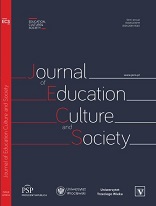Psychological Characteristics of remedial Teachers of different Altruism Levels
Psychological Characteristics of remedial Teachers of different Altruism Levels
Author(s): DIna Shulzhenko, Khristina SaykoSubject(s): Adult Education, Educational Psychology
Published by: Fundacja Pro Scientia Publica
Keywords: altruism; selfi shness; sociability orientation; self-assertion orientation; activity orientation; value priorities; character qualities.
Summary/Abstract: The authors of this paper studied psychological characteristics of remedial teachers with different altruism levels. Altruism is a motive to render assistance to anyone not consciously related to one’s own selfish interests. Subjectively it manifests itself in sympathy, being oriented towards helping others. Altruism is opposed to selfishness, which is incompatible with disinterested concern for the welfare of others and willingness to sacrifice personal interests for them. The main driving force behind altruistic behavior is a drive to improve the situation of others rather than expecting some reward. In psychology, altruism is considered as a system of personality value priorities in which interests of another person or social community are a central motive and a moral evaluation criterion.
Journal: The Journal of Education, Culture, and Society
- Issue Year: 6/2015
- Issue No: 2
- Page Range: 93-101
- Page Count: 9
- Language: English

